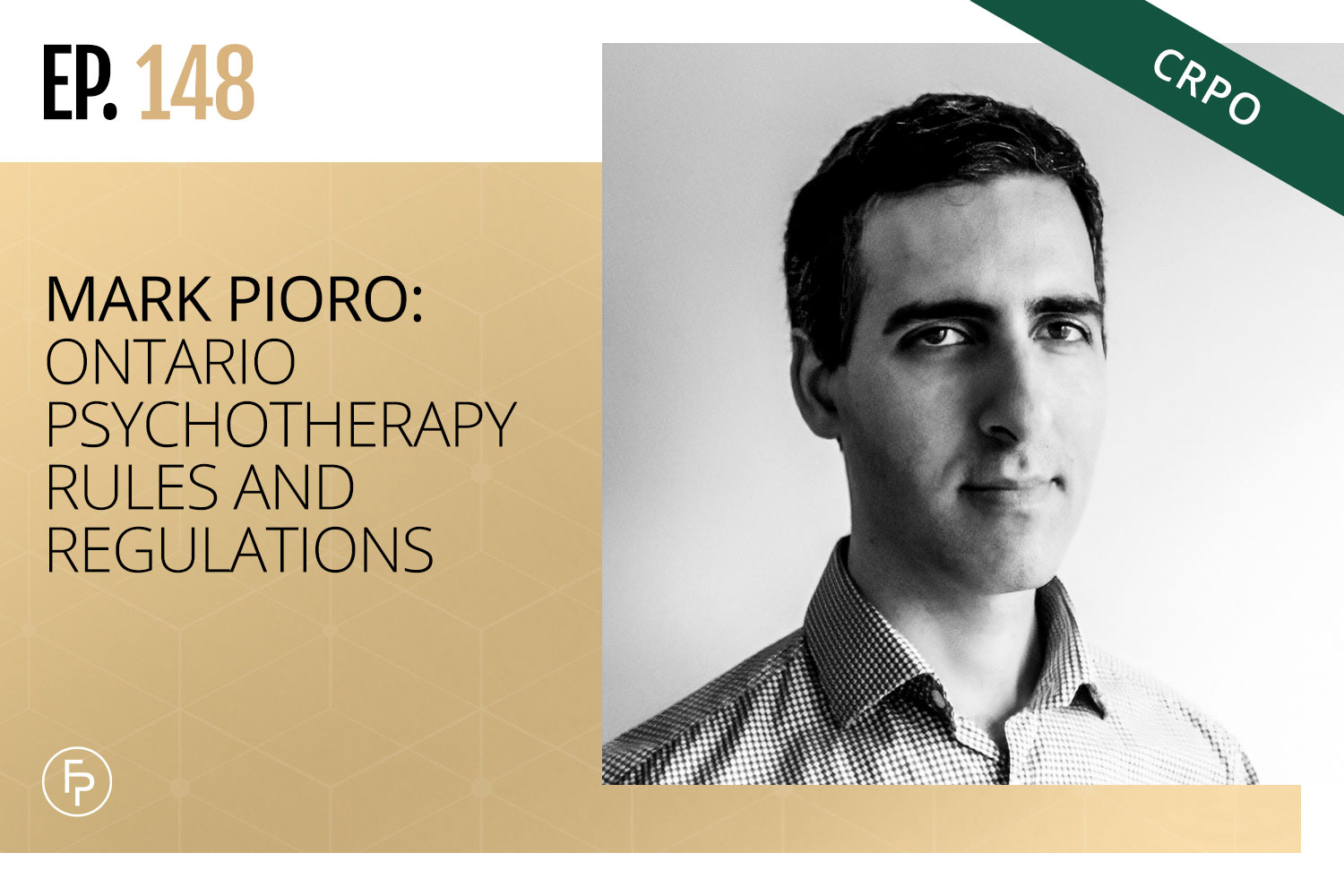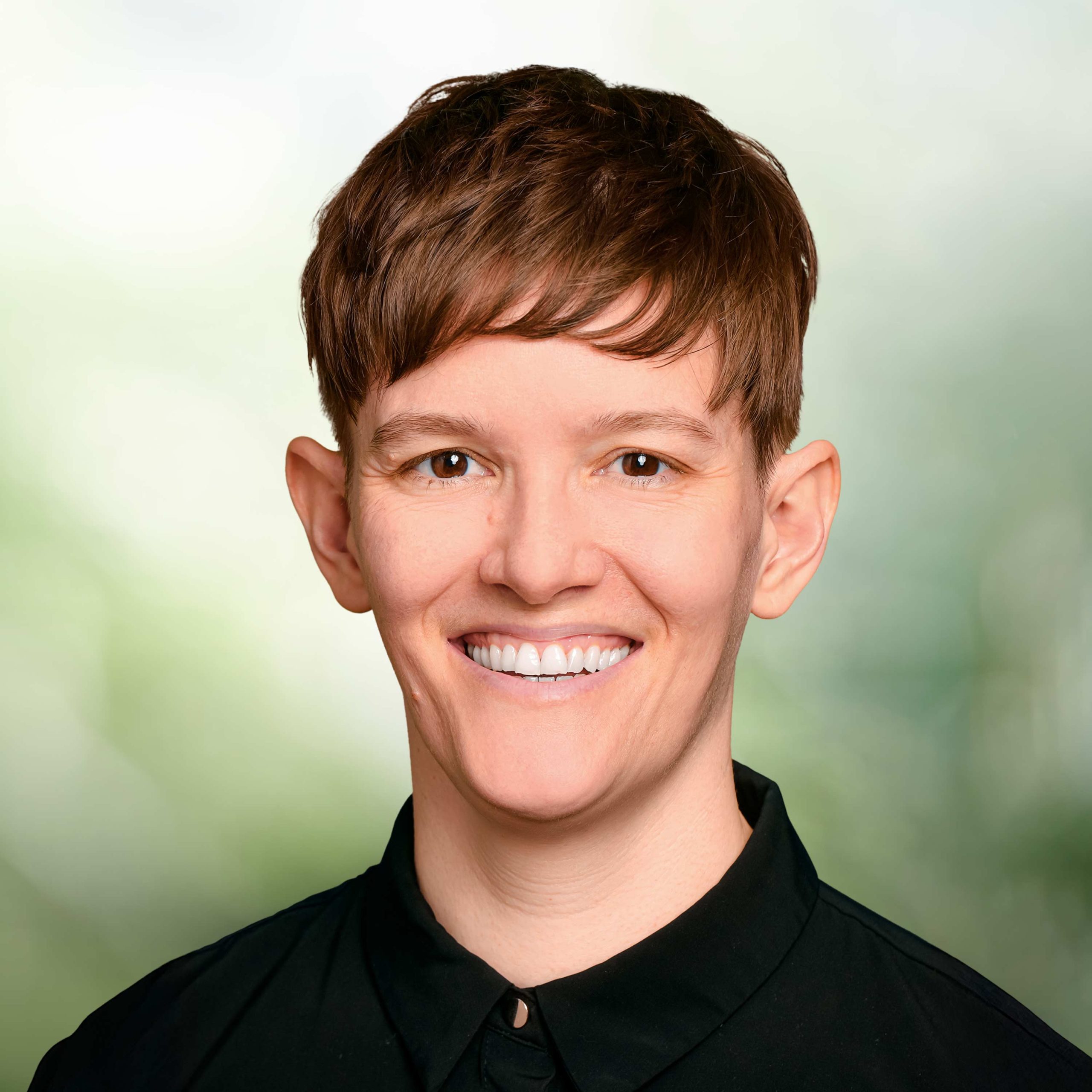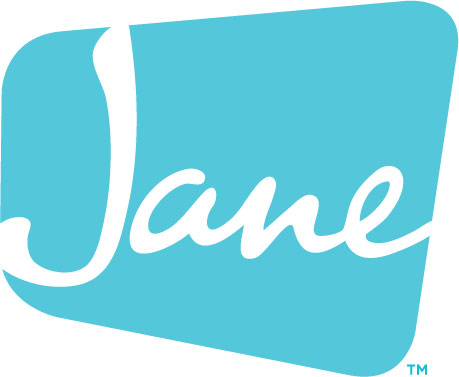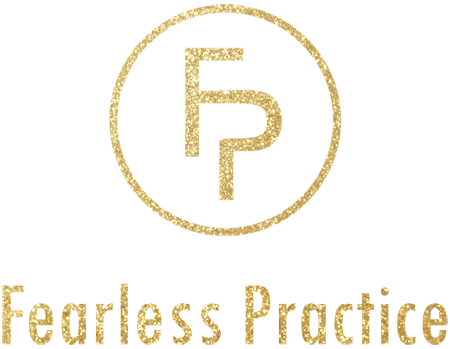MARK PIORO: ONTARIO PSYCHOTHERAPY RULES AND REGULATIONS | EP 148

Are you a Registered Psychotherapist? Are you licensed through the College of Registered Psychotherapists of Ontario (CRPO)? Do you know what you’re allowed and not allowed to do in your private practice?
Today’s guest is Mark, the Deputy Registrar and General Counsel at the College of Registered Psychotherapists of Ontario. We discuss rules and regulations that pertain to registered psychotherapists in private practice.
Join our conversation today to learn more and receive expert information and recommendations!
Jane is an all-in-one health and wellness practice management platform designed to be helpful to you, no matter how or where you practice. Available online and on any device, Jane offers branded online booking, beautiful scheduling, insurance management, customizable charting, online intake forms, patient reminders, integrated payment processing, online appointments (telehealth) and more! Use the code FEARLESS at signup to receive your first month completely free!
MEET MARK
Mark Pioro is the Deputy Registrar & General Counsel at the College of Registered Psychotherapists of Ontario (CRPO). CRPO is the regulator, established by the government, which sets the standards for RPs. CRPO acts in the interest of the public, striving to ensure the competent and ethical practice of the profession.

Learn more about Mark and the CRPO on the CRPO website.
In This Episode
- What is the CRPO?
- Certification and residency
- The CRPO and running private practices
- Going from graduation into private practice
- Do’s and don’ts in advertising
- Managing fees and rates ethically
- Handling complaints
What is the CRPO?
‘The CRPO is a regulator. It works in the public interest and it’s responsible for the practice of Registered Psychotherapists or RPs, and that’s an important note … because there are other professionals both in Ontario and outside Ontario who practice psychotherapy or counselling.’ – Mark Pioro
The College of Registered Psychotherapists of Ontario (CRPO) is one of the regulatory bodies for psychotherapy in Ontario. This means that only individuals registered with the CRPO are legally permitted to call themselves Registered Psychotherapists (RPs). But other mental health professionals may be regulated to provide psychotherapy services by different colleges.
In 2007, the Ontario government decided to allow the following to provide psychotherapy services:
- Nurses
- Occupational therapists
- Physicians
- Psychologists
- Social workers
- Registered Psychotherapists
‘This was an efficient, smart decision because it saved individuals from having to apply to multiple colleges if they already belonged to one. The thing to keep in mind is if they belonged to one of the colleges other than CRPO, then they are governed by that college which may have its own educational and supervision requirements before practicing psychotherapy … It would be necessary to research those other colleges.’ – Mark Pioro
Certification and residency
With Registered Psychotherapists (RPs) you can be a registered RP without having to be in Ontario. You can also easily become a RP if you are registered with another regulated province as a Registered Counselling Therapist.
‘There is no residency requirement. A person can apply from anywhere and practice from anywhere.’ – Mark Pioro
The CRPO and running private practices
The College of Registered Psychotherapists of Ontario (CRPO) offers resources and information regarding regulations and laws related to the practice of psychotherapy. However, the CRPO does not provide training or guidance on the business aspects of running a private practice, including areas such as tax implications, insurance requirements, or other specific business-related advice. Those seeking guidance on these matters should consult with relevant professionals, such as accountants or business consultants.
‘The business aspect should not distract from client care, and client care should not distract from administration and recordkeeping.’ – Mark Pioro
Going from graduation into private practice
‘CRPO’s standards are business-vehicle neutral. For example, if you have appropriate supervision and oversight, then you can set up whatever form of business [that] works. But, as a practical matter … when someone is just starting and learning the ropes of therapy … it’s possible that in their individual circumstances, it might be too much for them to have all of that happening at the same time. For a different individual, it could be different.’ – Mark Pioro
Essentially, it depends on the therapist. In Ontario, if the student has completed the course work and feels confident enough to run a private practice, they could start a private practice while finishing their degree. However, the psychotherapist would still need to have supervision and oversight. Remember that every provincial college may have different regulations for when a therapist can start private practice!
‘Listeners, always look at what college you are applying to and make sure that you are always following their guidelines and checking in to [see] that you are doing everything correctly.’ – Julia Smith
Do’s and don’ts in advertising
Make sure your advertising is;
- Truthful
- Accurate
- Verifiable
Some inappropriate advertising may include;
- Promising results
- Using comparisons or superlatives
- Concealing advertising
- Advertising in a regulated province where you are not licensed
‘If someone is writing an article or a blog, that’s perfectly fine … to use blogs as marketing. However, if it’s a paid placement and you are paying for that spot like an ad, it should not be concealed. It should be made apparent that it is an advertisement.’ – Mark Pioro
Be clear and honest with your advertising. Be ethical, and don’t try to sell your services as a fix-all to potential clients in order to get more business. Talk with a Canadian consultant to make sure that you remain ethical while still effective.
Managing fees and rates ethically
An RP cannot lure in a client with a low rate and then suddenly increase it once the therapeutic relationship has been established. However, you can raise your fees and rates ethically, since your expertise levels may increase and inflation is an issue sometimes.
‘The key point is to provide reasonable notice to clients of the increase and not to discontinue therapy because a client cannot afford the higher fee.’ – Mark Pioro
There is a way to be ethical and offer therapeutic services while still running a profitable business.
Handling complaints
- Check your insurance policies, since some insurance companies may offer you a lawyer for the process while others might not
- Have a network of support for this challenging time so that you are not isolated in your practice
- The most serious complaints may go public, but those are very rare and may need evidence and legal findings
- Most complaints and investigations are resolved without a disciplinary hearing which has to go public
Connect With Me
Resources Mentioned and Useful Links:
Ep 147: Encore episode | EP 147
Learn more about the tools and deals that I love and use for my Canadian private practice
Sign up for my free e-course on How to Start an Online Canadian Private Practice
Jane App (use code FEARLESS for one month free)
Learn more about Mark and the CRPO on the CRPO website
Rate, review, and subscribe to this podcast on Apple Podcasts, Spotify, Amazon, and TuneIn


About Jules Smith
Jules Smith, MEd, RCT, CCC is a registered Counselling Therapist who owns a group private practice in Halifax, Nova Scotia. They are also the owner of Fearless Practice Consulting and hosts the Fearless Practice podcast. Through the Fearless Practice podcast, they provide invaluable insights and practical advice on starting and growing a successful Canadian private practice.
Jules also has written articles for the Canadian Counselling and Psychotherapy association. You can learn more at www.ccpa-accp.ca/blog/.


